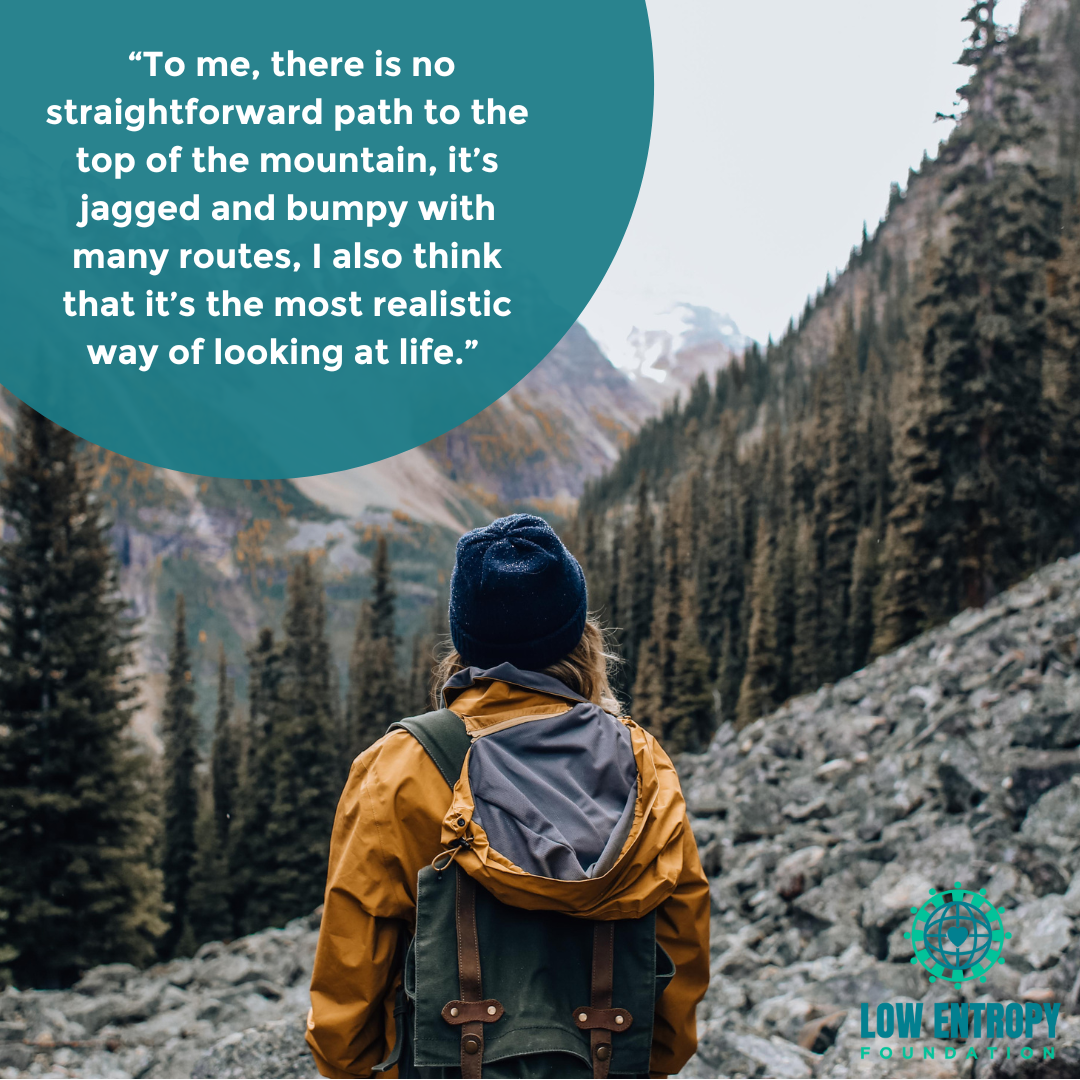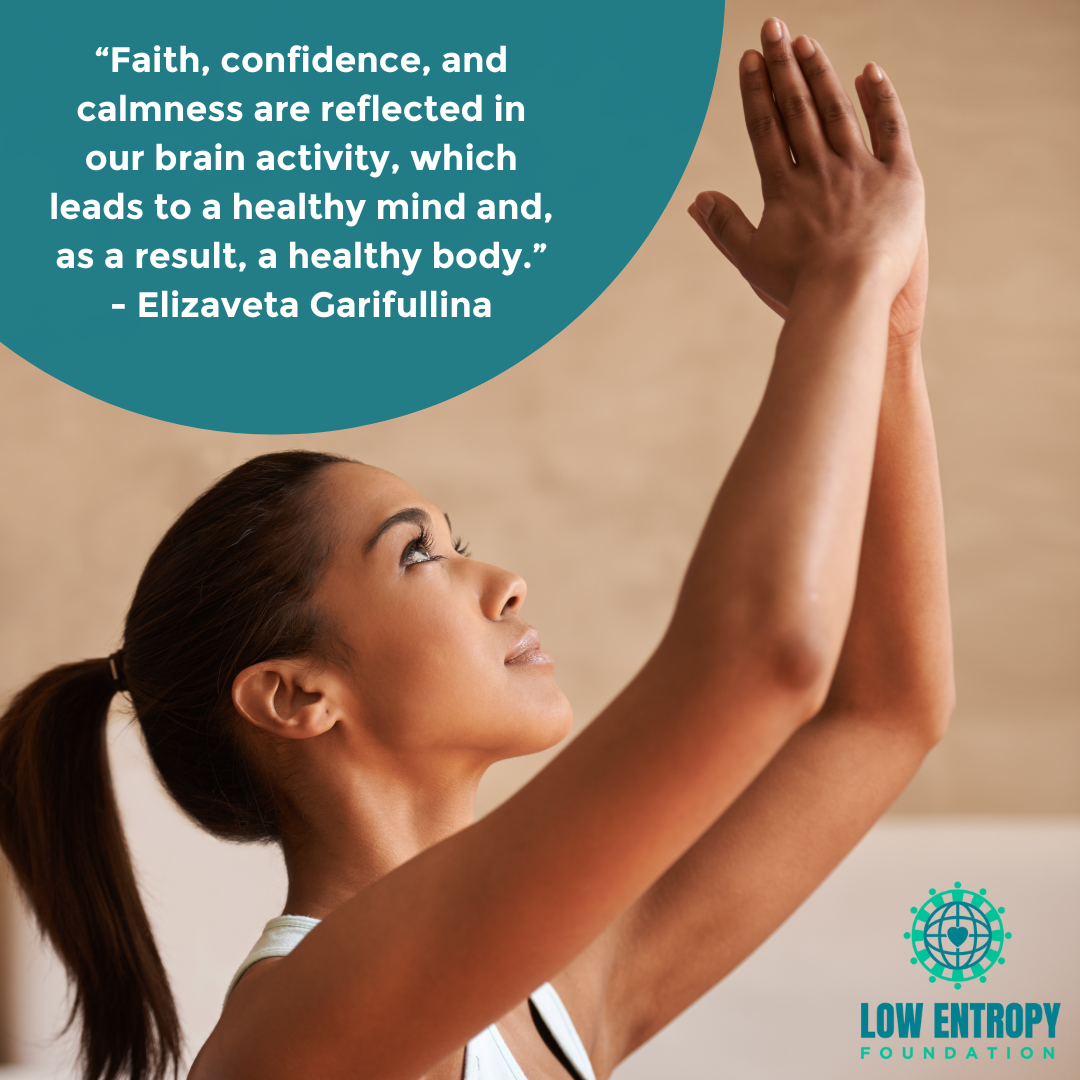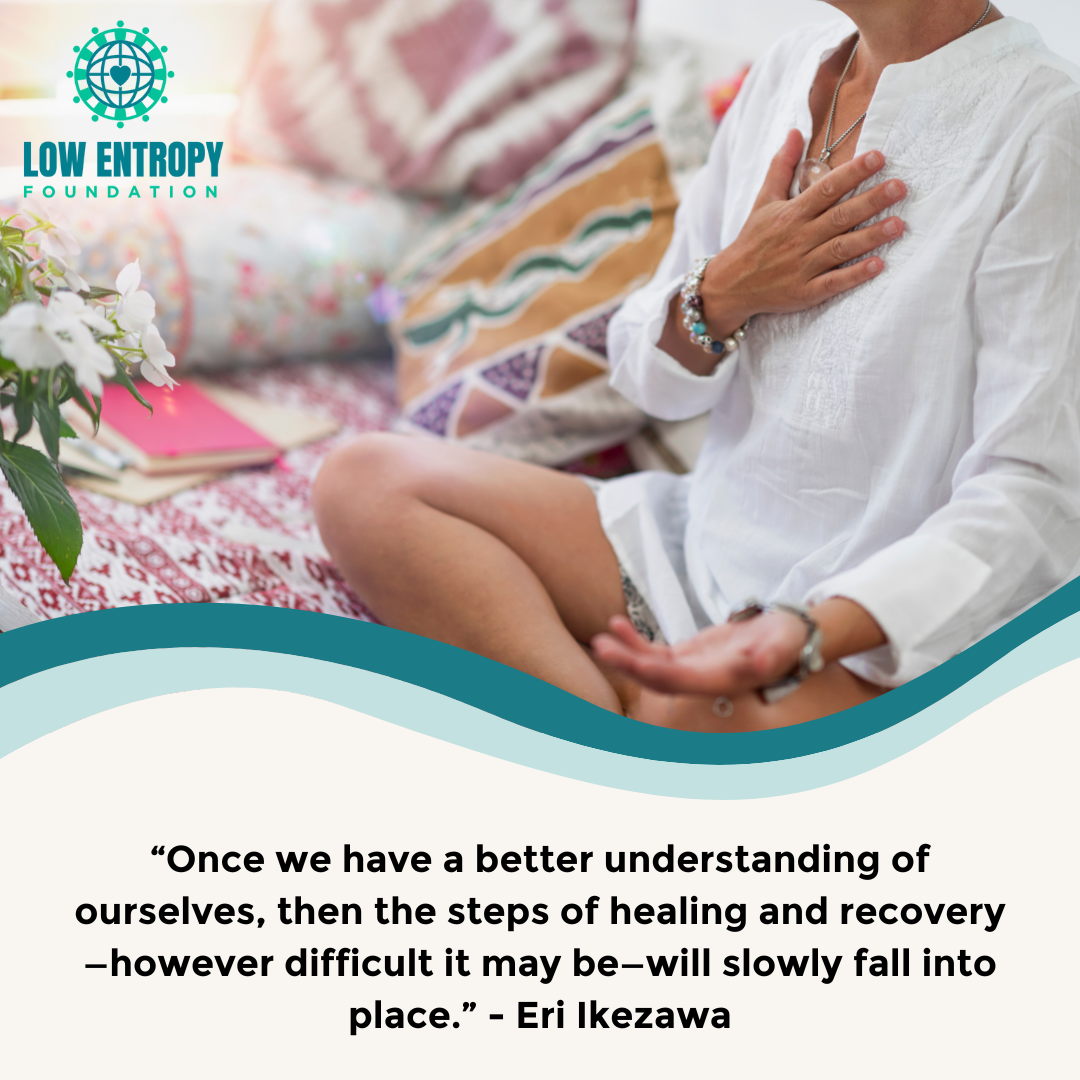Cristina Crescenzo (she/her/hers), Low Entropy Volunteer Writer
When you search up how to define recovery, the first thing to pop up is the following definition: it is “a return to a normal state of health, mind, or strength.” At first glance, this seems like a perfectly acceptable definition but if you sit and think about it, it offers up a vague answer to something that is actually quite complicated. In my opinion, recovery can mean a lot of different things to many different people and situations. I think it is unfair to put the word “normal” within the definition because firstly, I don’t believe there is such a thing as normal in this world and secondly, I think it puts high expectations on something that is very difficult and that pressure can cause harm.
I can’t speak for others because everyone has their own way of working on and defining their recovery but in my case, if I were to say what my recovery looks like for me, I would describe it as a nonlinear journey. To me, there is no straightforward path to the top of the mountain, it’s jagged and bumpy with many routes. I also think that it’s the most realistic way of looking at life. I have learned overtime that we all want some clear idea of where we are headed: there is security and comfort in that and I have felt that urge to have all the answers many times. However, there is also something comforting in giving up control and letting the wind direct you where it wants.
I am not saying that this method is meant for everyone. Some people strive in structured environments and they feel anxious without it but personally, I think you should always explore different alternatives and find the one that works best for you. I may not have had to recover from alcohol or drug abuse, but I have been in a fight within my own mind for years trying to reclaim control while also searching for happiness and meaning in my life. I have noticed that I can fixate so hard on one little slip up that it can completely erase all the progress I made the previous day. I have to allow myself room for errors so when I do fall, I am more prepared the next time so it doesn’t feel like the world crashed alongside me. I also think it would be beneficial if individuals who aren’t struggling or recovering from something took a minute and accepted the fact that even if it is hard to watch your loved one recover, they aren’t going to be fine overnight. Recovery takes time and a lot of wounded souls can feel like Humpty Dumpty who falls off the wall just waiting for someone to put them back together and I think even though that support is helpful and may seem easier. I think we need to remember that we are able to help ourselves, even if we just don’t believe it yet.
In conclusion, just remember to be patient with yourself and the things life puts in your path and even though it sucks sometimes, it does make you a stronger and better person. I truly believe that. However, if my words lack gravity with the masses, take a moment to listen to “The Climb” by Miley Cyrus and keep these lyrics in your heart as a sort of mantra:
“[t]here’s always going to be another mountain, I’m always going to want to make it move, always going to be an uphill battle, sometimes I’m going to have to lose, it isn’t about how fast I get there, it isn’t about what’s waiting on the other side, it’s the climb.”
At the end of the day, when you do finally feel like you have reached a place of healing and can live a good life you will be able to look back at the person you once were and appreciate the journey.
–
My name is Cristina Crescenzo and I am a university student who has a passion for writing. I hope that through my blog posts people can connect with me and learn something. I also want to bring constant awareness to mental health and the disabled community and I believe I can do that best at Low Entropy.









